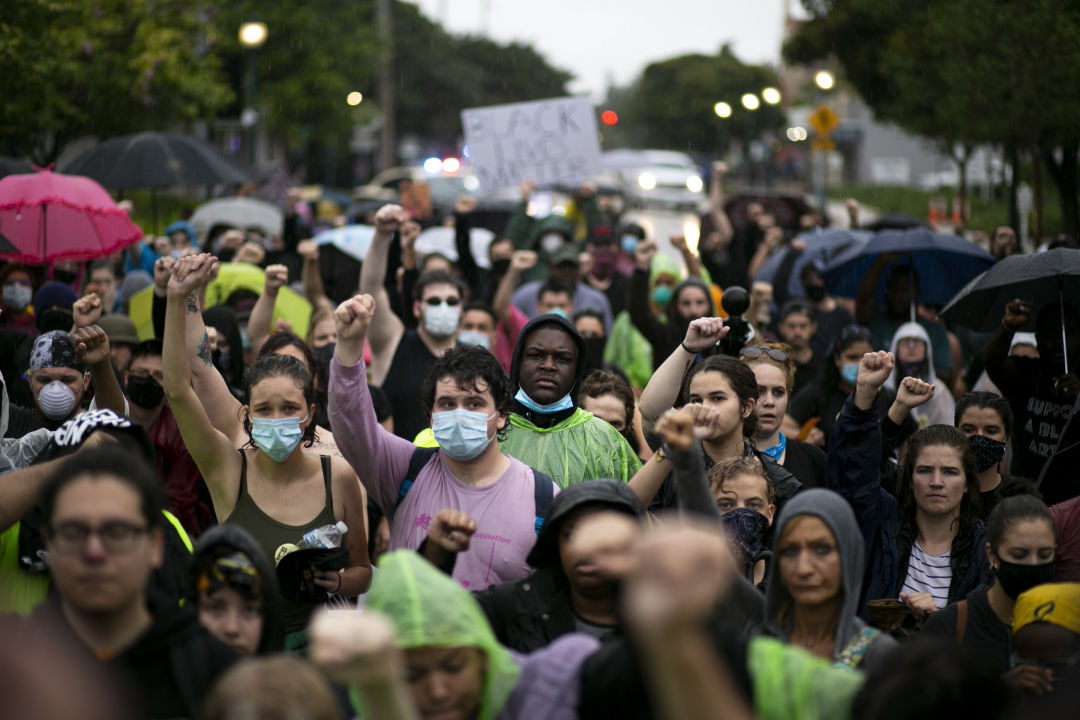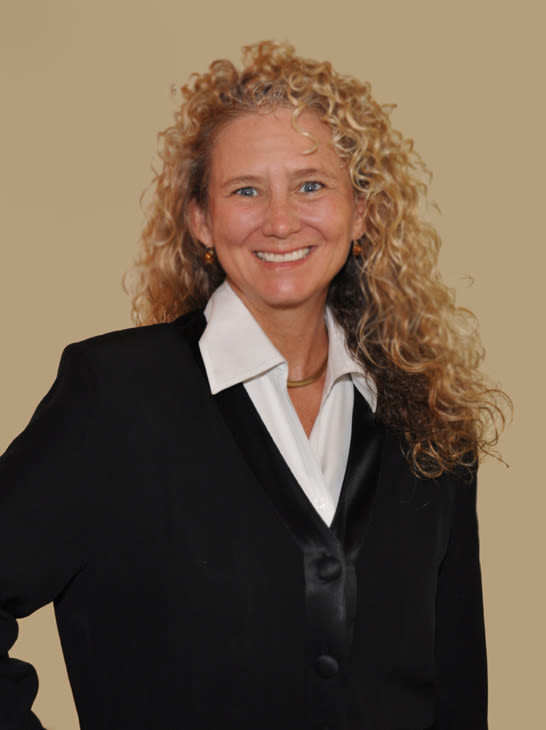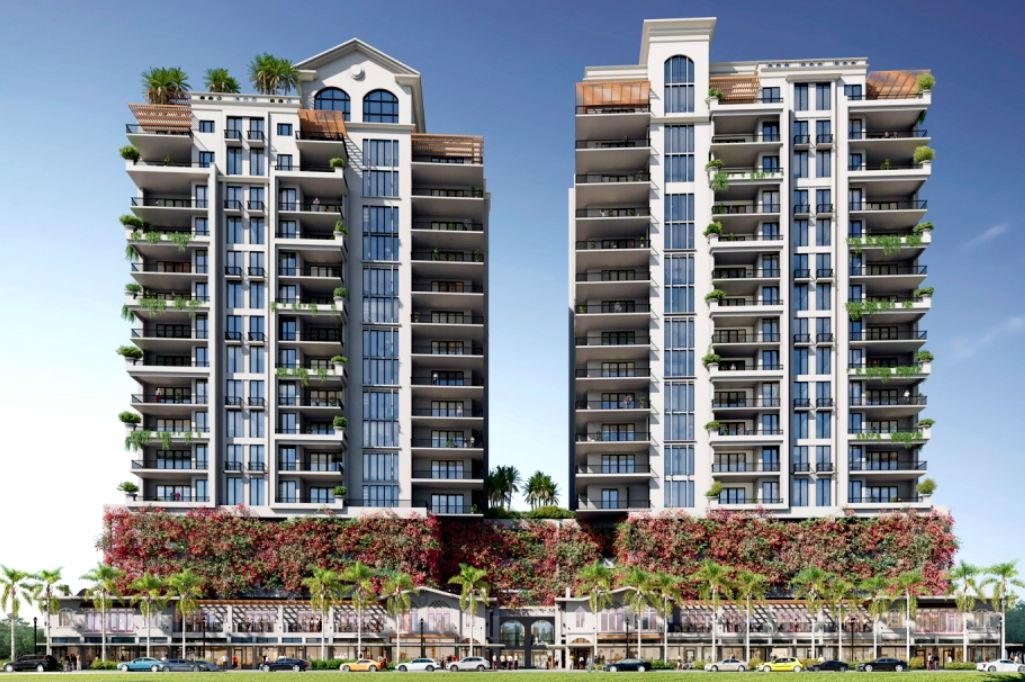Sarasota's Mayor Says the Time for Anti-Racist Action Is Now

Protesters at a recent demonstration in downtown Sarasota.
Image: Joe Lipstein
Protests sparked by the murder of George Floyd by members of the Minneapolis Police Department have hit all 50 states and nearly every major American city. Sarasota has been no exception. Hundreds of protesters have occupied Sarasota's streets and intersections on multiple days, calling out for racial justice and expressing rage at the treatment of black men and women by the police.
"It's an incredible moment that we are living in," says Sarasota Mayor Jen Ahearn-Koch. She joined a protest in Sarasota on May 31. "I really wanted to hear what the people were saying," she says. "I wanted to get a sense for myself of what was going on and be a part of this groundswell that's happening in our world right now."
As the protests continue, Ahearn-Koch, who was elected to the Sarasota City Commission in 2017 and became mayor last year, says she is focused on implementing what she describes as "anti-racist" public policy. In a recent interview with Sarasota Magazine, she describes what that means and why the City of Sarasota must "seize" upon the energy of the protesters filling America's streets. The interview has been condensed and edited for clarity.

Sarasota Mayor Jen Ahearn-Koch
Image: Courtesy Photo
You said at one of the early protests in Sarasota, “We have to make sure that the policy we create is anti-racist.” How do you define “anti-racist” public policy?
I'm one of five people who get to vote on policy. I can be part of actually changing policy, so that we do address the issues and we revisit them—as well as our programs and our laws and our zoning and everything we can do. It's all with a relatively new mindset that is focused on being actively anti-racist.
I think now is the opportunity for us to revisit all of that, and also to be proactive and say, "We're revisiting this grant program. Why don't we revisit this one and this one and this one and this one? What is working and what is not working? How can we make these more effective and efficient? How can we make sure we are addressing the community and helping the community that we want to help?"
It's one step at a time for everything we do. We can and we should be doing it, and we should be doing it now. It's actually quite an exciting time. Everything that has happened, of course, is just heart-wrenching. But we need to seize this moment and make something real come about from it.
So you're saying that with every issue that comes before the City Commission, there should be an analysis of whether it's anti-racist or not?
Absolutely. Absolutely. Absolutely. And [we should ask]: Are we doing everything we can? Are there other steps we can take? Are there other things we should be considering? Should we flip this over and look at it from another angle? Have we? Should we? Will we? What will it yield? Let's be more judicious about this. Let's really hold ourselves to task, each and every one of us.
I like the word "groundswell." I feel like the whole earth is going, "Rrrrrrrrrr"—like, lifting everyone up and saying, "Now is your moment." It's now, or you can go another 50 years.
Something that is relatively new to me is the term "anti-racist." [Editor's note: In February, Ahearn-Koch attended a talk in St. Petersburg by Ibram X. Kendi, author of Stamped From the Beginning: The Definitive History of Racist Ideas in America and How to Be an Antiracist.] That was the first time I had heard the term. I had never heard it before ... and I feel horribly ignorant that I didn't know it eight months ago. I'm so happy, at the same time, that I had the opportunity to learn and to grow and become more curious and more inquisitive and do more research so that we can effect change and affect policy. I'm in a position to do it, and I'm not apologetic about pursuing this in any way, shape or form.
You've been on the City Commission since 2017. Are there examples of anti-racist policies the city has pursued since then?
A lot of what we're trying to do in Newtown is very important, and I would like to see more support for that and more programs, more discussion, more funding. We're trying to focus on programs, and what we can do in Newtown with the funds we have, but there's so much more we can do and we should do. My guess is that we will.
The [city's Community Entrepreneur Opportunity] program is a tiny example, but it's an example nonetheless. [Editor's note: The CEO program helps aspiring entrepreneurs by training them on how to start a business and offering one-on-one counseling and networking opportunities.] It's not a program geared specifically toward minorities. Everybody is welcome. It gives people who have an idea for a business the ability to step their foot into it, to actually create a small business.
If they need funding, we help them with the paperwork to get funds, because we also have the Newtown Business Assistance Grant Program. [Editor's note: The Business Assistance Grant Program was created to boost the creation of new businesses in Newtown and to help existing businesses pay for physical improvements.] Sometimes just filling out paperwork is intimidating for people, and they go, "Oh, I can't do this. I'm not going to do it." But if you go through the program, we help you fill out the paperwork. We also have connections to getting loans, should small businesspeople need them. That's a tiny example of something that we are doing that we could expand.
We started the grant program in 2017. We've given two grants for businesses. And just recently, I was on the phone [with staff] and [we were saying,] "Why aren't we giving more? What's the problem?"
You can have a policy and you can say, "We want to have a grant program and we want to give X number of dollars away to businesses. OK, come and get your money." But if you have a form that doesn't speak to the businesses [that people want to create,] you're doing no good.
So [staff has] found that the types of businesses people want to create are mobile businesses. They are becoming very popular. Are they included in our grant program? Guess what? They're not. So if we revisited our program and included mobile businesses, and we worked with zoning and we figured all of this out, then we would be enabling mobile businesses and maybe that's a way to help.
That's what I want to encourage. I want us to re-look at every little thing that we do and say, "Is it working? Could it work better? Where are we focusing our energy and our funds, and could it be focused better elsewhere?"
The city has two police oversight panels, the Independent Police Advisory Panel and the Police Complaint Committee. Are they functioning in the way that they should be?
It's interesting you mention that. We have on our agenda for Monday appointing the chair of each of those panels. We have members of the board already, and we have received nine applications or more in two days. [Editor's note: That City Commission meeting will begin at 1:30 p.m. on Monday, June 15. After the City Commission appoints the two chairpeople, the chairpeople and Sarasota City Manager Tom Barwin will review applications to fill the remainder of the five-person panels. The final makeup of each panel must be approved by the City Commission.]
A lot of people have written to me about 8 Can't Wait, and we have fulfilled the 8 Can't Wait requirements. [Editor's note: 8 Can't Wait is a national effort to encourage police departments to adopt eight specific policies to reduce police violence. Examples include banning shooting at moving vehicles and chokeholds or strangleholds.] When people would write me about wanting the city to comply with 8 Can't Wait, I'd respond and say, "We do. And if you want to be involved, we have advisory boards. Here's the list. Please apply."
I'm very excited that this is happening and people are applying. People are wanting to get involved and to help.
My impression is that people have interest in serving on these boards when the topic is in the news a lot, and then it drops off the radar. How do you keep people engaged when this is something that's not dominating the news every day?
This is a conversation we have to keep going all the time. It has to be continuous. It can't build up and then die down. We have to continually check ourselves.
I'm in office for another two years and five months. Call me every two months, if you want, and say, "What is being done? What progress has been made? What steps have you taken?" Call me to task on it.
What do you think about the slogan "Defund the police"?
It's really hard to take something like that and say, "This is a blanket rule for everybody," because not everybody's budgets work the same. I got some emails from people saying, "Defund the police. Take the money from the police and put it toward schools." Or "Put the money toward...," and they would name some nonprofit that's in Manatee County. But that's not the way our budget works.
But I understand what people are saying. I think what's meant is, "Examine your budget. Is everything you're doing going to help this situation?"
Look at real things like body cams. We as a city have been putting money aside for body cams, but there are real issues that make body cams problematic, and while we support them, those issues have been very difficult to overcome, which is why we don't have them yet. [Editor's note: Sarasota Vice-Mayor Shelli Freeland Eddie has requested a discussion of the use of body cameras by police officers at Monday's City Commission meeting.]
If there's a public records request for an incident and it captures somebody who has nothing to do with it, you have to redact them. It is very complicated legally. And, as you know, lawsuits are a very costly undertaking, and so our legal department is saying, "If you want to do this, you know you're opening yourself up."
So to defund the police department, but then to have body cams, is kind of in conflict. Body cams come at a big cost. The software, the hardware, storage and then the legal portion of it. You wouldn't want to defund your police and then demand body cams.
[We need] to make sure every penny we're spending is being spent with this focus on training, education and policies. I do support examining every penny we spend to make sure we're spending it in the best way possible.
The Sarasota Police Department budget is currently $35.5 million. When that comes up again, will you be examining it more closely?
Our budget meeting is on [Monday, July 27, and Tuesday, July 28], so it's just around the corner for us.
We go step by step by step through every single solitary department's budget. We'll examine the police department's like we do every other department.
How do you think the police department has handled the demonstrations that have happened in recent weeks?
I'm really pleased at the way we have been able to keep our protests peaceful. I support protesting. We have a history of it in our society and in our country, and it's our right and, in some ways, it's our civic duty. But they should always be peaceful and they should always be respectful, otherwise you lose the message.
I think our police have done a really good job with the protests up to this point. They've been peaceful and they've been respectful, and that's all you can hope for. The message is out there, and so they've been successful.
What are your thoughts on how police Chief Bernadette DiPino has handled the arrest of Patrick Carroll, which involved an officer kneeling on Carroll's neck while arresting him?
I would love to be able to answer that question and expand on my answer to that question. Unfortunately, there's a lawsuit, so I am limited in my comments. The attorney has let me know that I cannot really comment. [Editor's note: Carroll, who was arrested on May 18, has filed a lawsuit accusing the officers who arrested him of the "unjustified, unreasonable and excessive application of force."]
Is there anything you want to say that we haven't discussed?
We are in more than a crisis. This is an economic crisis. It's a budgetary crisis. It's civic upheaval. It's a racial crisis. We are in such an unprecedented time.
It's amazing that something as awful as what we've been experiencing has made people reach out more than ever before. People are opening their eyes and saying, "Let's work together to fix these things." With everything that we're struggling with, people are saying, "How can I help? How can we work together? What can I do?"
This is an incredible time in history, and we have to seize it and we have to use it to let people know that they do have a voice and we can effect change. We can. We can. We can. We really can.



